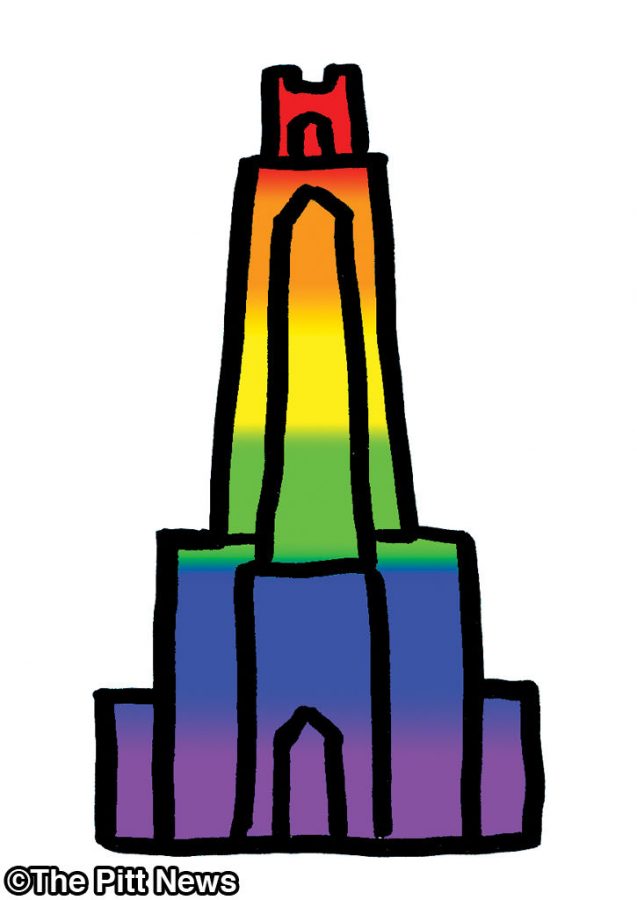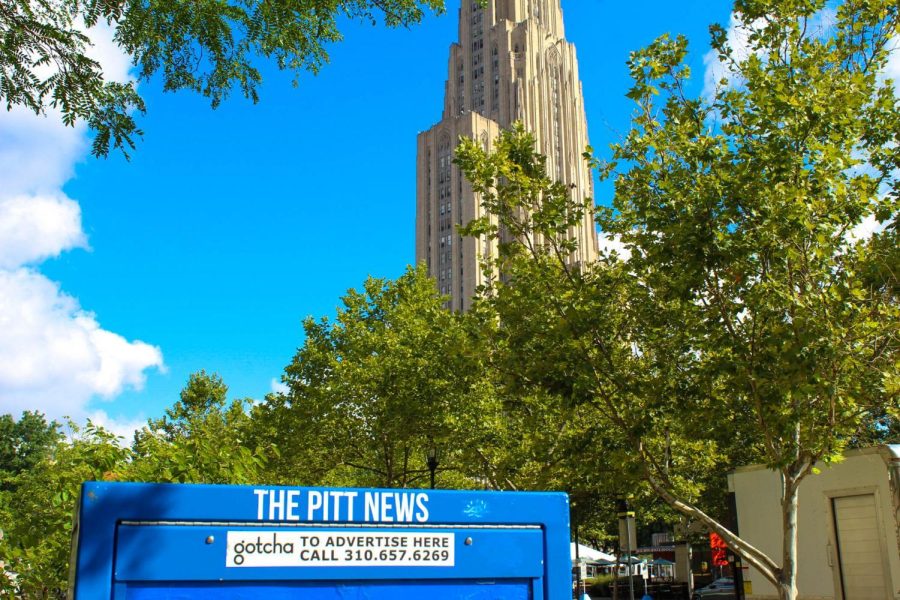Allies: Pittsburgh ranks second in state for LGTBQ friendliness
November 20, 2014
Sarita Brady, a genderqueer person, feels restricted in daily life.
Brady only feels comfortable at the Rainbow Alliance office and chooses to use gender-neutral bathrooms.
“It means that I feel compartmentalized as a queer and genderqueer person,” Brady, a freshman, said.
There is at least one single-user, gender-neutral bathroom in 33 out of 74 buildings on the campus map, and most of those 33 buildings contain two or more.
Despite not feeling completely comfortable in Pittsburgh, Brady, Rainbow Alliance’s communications chair, said the city is slowly improving the quality of life for LGBTQ people.
The improvements show in a new ranking by the Human Rights Campaign’s 2014 municipal equality index (MEI), which grades cities based on how well they support LGBTQ rights. In the report, which was released Nov. 14, Pittsburgh ranked as the second-best city in the state, behind Philadelphia.
The Human Rights Campaign scored Pittsburgh a 90 out of 100, a 25 percent increase from last year’s score of 72 points. The average city score was 59 points, with 25 percent of cities scoring more than 80 points.
The MEI bases its ratings on 47 criteria that fall under six main categories: non-discrimination laws, relationship recognition, municipal employment laws, municipal leadership on matters of equality, law enforcement and inclusiveness of city services. New to this year’s criteria, cities are now required to include transgender-inclusive healthcare coverage to get a perfect score.
Representatives from the Human Rights Campaign did not respond to multiple requests for comment via phone and email.
Christine Bryan, director of marketing and development for the Delta Foundation of Pittsburgh, said she is pleased about the results, despite not taking first place. The Delta Foundation is an organization that focuses on producing change in the LGBTQ community in Pittsburgh.
“That is something to be proud of,” Bryan said.
Pittsburgh lost 13 points in the “Municipality as Employer” section for its lack of transgender-inclusive healthcare benefits, a city contractor non-discrimination ordinance and anti-discrimination protections in city employment.
It lost three points in the “Municipal Services” section for a lack of anti-bullying policies and eight points in the “Law Enforcement” section for lack of an LGBTQ police liaison or task force. Pittsburgh gained 14 bonus points for providing services to LGBTQ youth, elderly, homeless and those living with HIV/AIDS.
In contrast, Philadelphia did not lose any points and gained 16 bonus points, although scores were not able to exceed 100. Philadelphia is one of only 38 cities out of the 358 rated that got a perfect score.
“It starts with the government,” Bryan said. “Mayor Peduto and [Philadelphia Mayor Michael Nutter] are both very supportive of the LGBTQ community. People are continuing to get more and more comfortable with themselves.”
But there are still areas to improve, Bryan said, such as creating statewide anti-discrimination laws in Pennsylvania.
Marc Reed, community outreach chair of Pitt’s Rainbow Alliance, said the equality index is fairly accurate.
“On the law aspect, the LGBTQIA community is making strides in equality,” Reed, a freshman, said.
What is true on paper, Reed said, is not always reflective of reality.
“Laws are much easier to change than society,” Reed said. “Pittsburgh is doing an excellent job in the political aspect of supporting equality, but we have to focus more on unlearning problematic mindsets and educate ourselves about the struggles of others.”
Brady said while Pittsburgh is advanced when it comes to equality movements, there is a cultural clash between the progressive city cultures and the more conservative and religious Midwestern cultures.
“It makes for a strange dynamic of being able to talk about your partner with strangers, but, in the same day, someone will scream slurs at you while you walk down the street hand-in-hand with someone of a similar gender,” Brady said in an email.
According to Brady, one way to help support the LGBTQ community is to question language and gender roles. People shouldn’t assume that gender is binary, Brady said, or assume that just because people have certain genitals doesn’t mean that they identify with the gender associated with those genitals. He pointed out the stereotypes that society assigns to certain genders, such as men not showing emotion and women being submissive.
“In reality, those aren’t learned patterns of biology and behavior at all but ridiculous beliefs that we developed rather recently,” Brady said.
Brady said while Pittsburgh has the resources to support equality, there is still a lot of progress ahead.
“If people are looking to relocate here, I think [LGBTQ equality] is a factor that people take into account,” Brady said. “They want to go to places that are welcome and there are events, bars, restaurants and a thriving community. Pittsburgh is finally getting recognized for what it is — we want everyone to be treated equally.”








